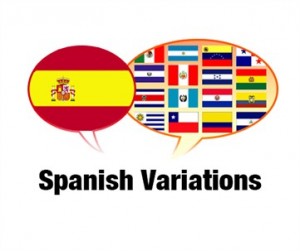Tú or Vos, What’s the Difference?
Posted on October 31st, 2013 by Samuel Max in Uncategorized | No Comments »
‘You’ or ‘you’? There are number of differences the Spanish languages present throughout the world, whether from loanwords of other languages or simply a new word that originates in that particular culture; but there is one main, and rather important difference to note, one that makes for quite a stark contrast between dialects.
Most people that start learning Spanish will enter the realm of Spanish from Spain, not a bad thing considering this is the land where the language originates, and is also the home of the Royal Spanish Academy, whose role it is to monitor and alter the language; but, there are however only 46 million people in Spain, worldwide there is 410 million native Spanish speakers, and they don’t all speak the same Spanish. So maybe it’s time to consider the differences, to see if you’re learning the version of Spanish that’s appropriate to you.
The term to use is voseo, which is the different words representing the second person singular pronoun, including its conjugational verbs. In Spanish from Spain, when referring to ‘you,’ you will use tú; in Argentina, Paraguay, Uruguay, and large parts of Bolivia, El Salvador, Guatemala, Honduras, Nicaragua, Peru, Venezuela, Colombia, Ecuador and Costa Rica — phew! — there is a predominant use of the form vos.
With the exception of Argentina, Paraguay and Uruguay, the use of usted in formal occasions or on professional writings and documents remains, tú and vos in these circumstances are a casual and informal means of communication.

The term ‘vos’ came to the Americas with the Spanish; however, when the Spaniards ceased to use it in favor of the ‘tú’ form, the Americas didn’t follow suit, for the most part sticking to their guns with ‘vos.’ The form is present in ‘you all,’ vosotros, which is literally ‘vos’ – you, and ‘otros’ – others, what is odd is that in Spain they continue to use ‘vosotros,’ yet in the majority of other countries, ‘ustedes’ is used almost exclusively.
As I mentioned earlier, the different forms don’t only affect the ‘you’ pronoun, they also change the resulting verb conjugations. For instance:
Ser (To be) in tú form is eres, in vos form it is sos.
Hablar (To speak) in tú form is hablas, in vos form it’s hablás.
Querer (To want) in tú form is quieres, in vos form it’s querés.
Comer (To eat) in tú form is comes, in vos form it’s comés.
Mostly subtle differences, but you’ll find that you need to know them in order to communicate effectively with someone using the different version. There is also the issue of ‘ustedes’ and ‘vosotros,’ as these too have conflicting conjugations, such as ‘queréis’ in vosotros form, and ‘quieren’ in ustedes form; but you might learn that regardless, as the ustedes form uses the same conjugations as the form for ‘ellos’ or ‘ellas.’
Can you think of any other notable differences in the many Spanish dialects? Do you think that this is too confusing and just want to stick to one language?





